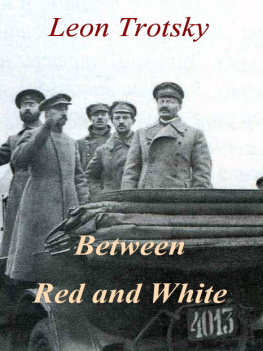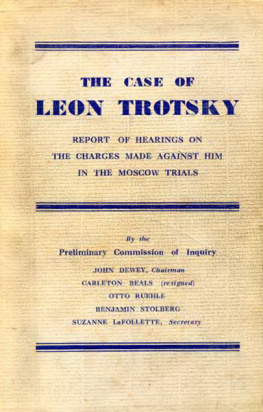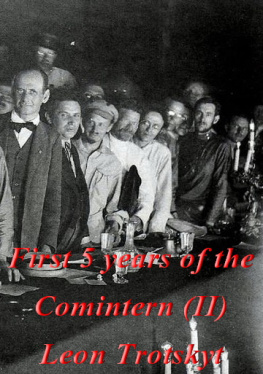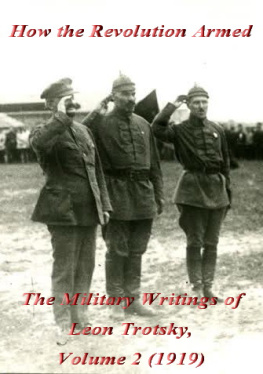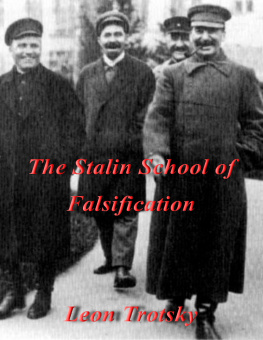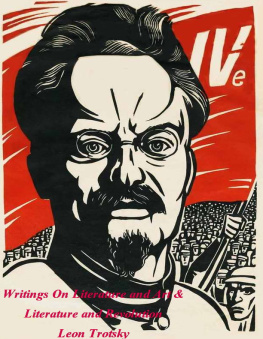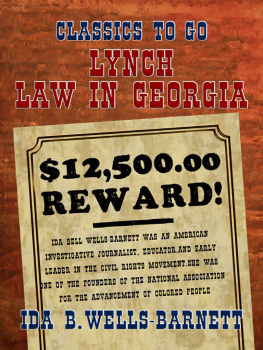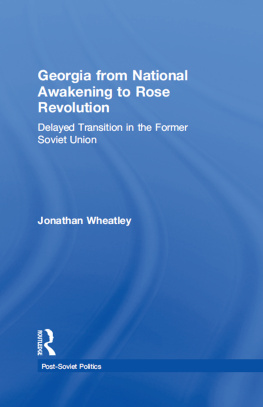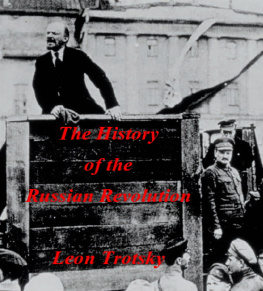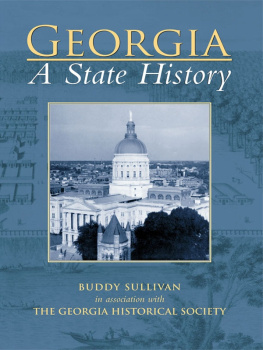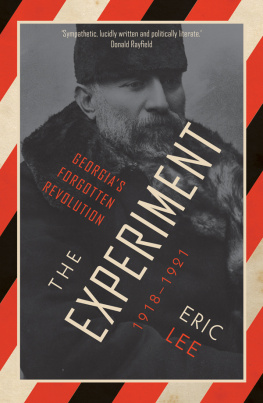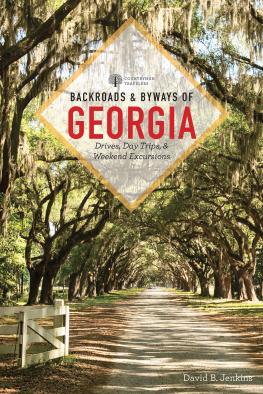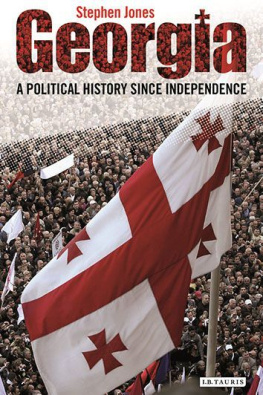Leon Trotsky
Between Red and White
APPENDIX
Manifesto of the Congress of the Georgian Soviets to Workers of the World
We, the representatives of the toiling masses assembled at the First Congress of theGeorgian Soviets, send our fraternal greetings to all the oppressed workers struggling against theexploiters of the whole world, and we protest indignantly against the oppressors and their servantswho, under false pretence of sympathizing with Independent Georgia, are even todaypreparing a fresh attack against the workers and peasants power which we havesecured. Georgia was a part of the Tsars Empire chained to it by the bonds ofviolence and oppression. In complete accord with the working class of the whole of Russia, thetoiling masses of Georgia have for a series of years struggled relentlessly against Tsaristautocracy, the big landlords and bourgeois exploitation. Owing to a lack of political experience onthe part of the toiling masses, the leadership in the struggle for a number of years had passedinto the hands of the Georgian petty bourgeois intellectuals. These, under the banner ofMenshevism, weakened the struggle of the working masses by trying to compromise and negotiate withthe autocracy and land-lords, and especially with the bourgeoisie.
During the imperialist war, the ruling Menshevik party in Georgia poured into the conscience ofthe toiling masses the poison of bourgeois patriotism, in this way acting in agreement with thetraitor leaders of the Second International.
When Tsarism was overthrown by the March revolution in 1917, the middle class Menshevik andSocialist-Revolutionary parties came to power for a while in the whole of Russia. An important roleamong them was played by the leaders of Georgian Menshevism, Chkheidze, Tseretelli and others.
In the sphere of international politics the watchwords of the Mensheviks, as well as all therest of the petty bourgeois parties, was to continue the war on the side of the imperialist nationsof the Entente.
In the social domain the Mensheviks strove to uphold the bourgeois order.
Politically they deemed it necessary to mask the bourgeois rule under the name ofdemocratic republic, which world experience has shown to be nothing but a tool in thehands of the ruling capitalist clique.
In their national policy the Mensheviks were at one with all the bourgeois and petty bourgeoisparties in fighting decisively against the national demands of the Finns, the Ukrainians, and othernationalities that were shut up in the Tsarist prisons.
In Georgia herself they hampered with all possible means the struggle of the toiling massesagainst their oppressors, hindered the solution of the agrarian question, kept at their serviceofficials who had been employed by the Tsars government, etc.
In full accord with the avowed bourgeois press, Menshevik papers centred all their efforts on acampaign of calumny against the Bolsheviks, misrepresenting them in the eyes of the workers andpeasants as enemies of the revolution and Tsarist agents. Never in the history of politicalstruggles has there been a campaign of lies more base, more spiteful, than this.
After the almost bloodless Petrograd October revolution, which overthrew the decayed governmentof Kerensky and Tseretelli, the Mensheviks took the lead in the civil war that united into onecommon camp against the workers and peasants Soviets, all the Mensheviks,Socialist-Revolutionaries, Cadets, and the Black Hundred in the country. When allobstacles had been overcome and the workers were victorious in almost the whole of Russia, theGeorgian Mensheviks severed the whole of Trans-Caucasia from the Soviet Republic and tried to makeit an independent bourgeois state. Having broken off their ties with the Russian working class,they went hand in hand with the bourgeois and landlord clique as represented by the GeorgianNationalists, the Armenian Dashnaks, and the Azerbaijan Musavatists. Under Menshevikleadership all Trans-Caucasia was converted into counterrevolutionary trenches to crush the growingworkers and peasants revolution.
Thus under the Menshevik leadership a dictatorship of the exploiters over the workers was set upin Trans-Caucasia, which was separated from Russia not on a national but a class ground. TheMensheviks seized the administrative and police apparatus, they set the tone to all Trans-Caucasia,and their control of Georgia was unchallenged.
The intervention of the Turks and Germans in Trans-Caucasia sharpened the struggle between thedifferent national factions of the bourgeois and middle-class front. The Mensheviks deemed thismoment favourable for dismembering Trans-Caucasia and proclaiming the apparent independence ofGeorgia. Seeing that they were well protected against the northern danger by the Kaisers andthe Sultans troops, the Mensheviks ruthlessly suppressed the workers strikes andpeasant revolts which were continually breaking out in different parts of the country. Just as theGeorgian Mensheviks in the persons of Chkheidze and Tseretelli previously attemptedto suppress the autonomy of the Finnish and Ukrainian peoples, they fought now with sword and firein Georgia against the national tendencies of the Abkhasians, the Adjarians, and the Ossetians.
With the collapse of German militarism, Menshevik Georgia changed her masters, but not herinternational or home policy. This time the Mensheviks became a tool in the hands of the Ententeimperialists. They maintained constant relations with all the counter-revolutionary forces in theSouth of Russia. They did not refrain from employing a single measure which could prejudice Russiaand do her harm. Naturally the Communist Party was definitively driven underground, while thesecret police worked to the greater glory of the bourgeois republic.
During the occupation of Batumi by the British troops, the Georgian Mensheviks policytowards Soviet Russia was especially insolent and provocative, and democratic Georgiawas certainly the best neighbour Denikin could have wished for his campaign.
His defeat at the hand of the Red Armies and the approach of the latter troops to theTrans-Caucasian frontier, at the beginning of 1920, shook the fictitious rule of the NationalistParty. A strong revolutionary spirit swept over the toiling masses. The Red Army might already atthat time have entered Georgia as long-wished liberators from the yoke of the Mensheviks and theEntente. The class-conscious workers and peasants looked forward to the Red troops and calledloudly to the Soviet Government for their help. But, unwilling to shed the blood of the workers andpeasants, and acting upon their desire to establish a solid peace between the workers and peasantsof Georgia and Russia, the Russian Soviet Government stopped the march of the Red Army on Georgia,and in May, 1920, signed a treaty of peace.
But from the very first day of signing the treaty the Mensheviks began to violate itsystematically. They began openly and secretly to assist all the enemies of Soviet Russia with thehope that the Soviet government would soon fall and that the workers and peasantsrevolution in Russia would be finally crushed. These gentlemen, however, were cruelly mistaken.
The end of the Polish war and the defeat of Wrangel in the autumn of 1920 caused the inevitablecollapse of the Georgian wing of the counterrevolutionary front. Taught by the experience of theagreement with the Georgian Mensheviks which they had so perfidiously and with unprecedentedtreachery broken the Russian Soviet Republic could not, of course, stand aside from thisstruggle which the Georgian toiling masses conducted against the Georgian Menshevik government, andit was only natural that the workers and peasants of the Soviet Federation should come to the helpof the Georgian masses who had revolted against the bourgeois and the landlords.

